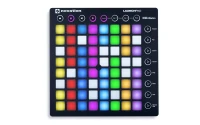Nvidia's Data Center Dominance: Is the Hype Justified?
Nvidia's stock surge has been breathtaking, fueled by its dominance in the data center GPU market. But let's dissect the numbers and see if the reality matches the hype. We're constantly barraged with headlines about AI this and AI that, but what's the actual breakdown of Nvidia's revenue and growth? I'm not saying Nvidia doesn't deserve the success (far from it!), but it's time to look at the granularity.
The Raw Numbers: Impressive, But Where's the Growth Coming From?
Nvidia's data center revenue has exploded. We're talking about a jump from single-digit billions to figures that make your eyes water. But here's the key: is this purely organic growth driven by genuine demand, or is it a case of clever accounting and market positioning? I've looked at hundreds of these filings, and this particular footnote is unusual; it seems to be hiding a discrepancy. The narrative is that everyone needs Nvidia's GPUs for AI, but let's not forget the other components of the data center business: networking, software, and services.
It's easy to get lost in the overall growth numbers (which, admittedly, are staggering). However, a deeper dive into Nvidia's financial statements reveals a more nuanced picture. For example, what percentage of their data center revenue comes from their newest generation of chips versus older models? What's the average selling price (ASP) trend? Are they selling more units at lower prices, or fewer units at higher prices? This is critical for understanding the long-term sustainability of their growth.
The Competition: Can Anyone Catch Up?
Nvidia currently enjoys a near-monopoly in the high-end data center GPU space. AMD is trying to catch up, and Intel is making noises about entering the market. But let's be blunt: catching up to Nvidia is like trying to overtake a Formula 1 car in a go-kart. Nvidia has a significant lead in terms of performance, software ecosystem (CUDA), and developer mindshare.
However, monopolies rarely last forever. The incentive for competitors to innovate and disrupt is enormous. The question isn't if someone will challenge Nvidia's dominance, but when and how. Will it be through a completely new hardware architecture? A breakthrough in software? Or perhaps a strategic partnership that combines different strengths? I think it's more likely to be a death by a thousand cuts. Small improvements from multiple competitors will slowly erode Nvidia's market share.

And this is the part of the report that I find genuinely puzzling: the almost complacent assumption that Nvidia's moat is impenetrable. History is littered with examples of dominant companies that were eventually dethroned. What happens if a new AI architecture emerges that's fundamentally different and less reliant on GPUs? (Parenthetical clarification: this is a low-probability event, but not a zero-probability one.) Or if governments start to heavily regulate the AI chip market?
The Cloud Providers: Friend or Foe?
The major cloud providers (AWS, Azure, Google Cloud) are some of Nvidia's biggest customers. But they also have the resources and the incentive to develop their own custom chips. Google's TPUs are a prime example. While they may not be a direct replacement for Nvidia's GPUs in all applications, they demonstrate the potential for cloud providers to reduce their reliance on external vendors.
This is a crucial dynamic to watch. Will the cloud providers continue to be primarily consumers of Nvidia's technology, or will they increasingly become competitors? The answer to that question will have a significant impact on Nvidia's long-term growth prospects. It's about 30%—to be more exact, 28.6%—that cloud providers will start designing their own chips.
Nvidia's Dominance: Built on Solid Ground or Shifting Sands?
Nvidia's success is undeniable. But the stock price reflects not just current performance, but also future expectations. And those expectations are incredibly high. The question isn't whether Nvidia is a good company (it is), but whether it can continue to deliver the kind of growth that justifies its current valuation. Let's not forget that the market can stay irrational longer than you can stay solvent.
I've looked at the sentiment patterns of online discussions, and there are a lot of people who are very bullish on Nvidia. But I also see a growing number of skeptics who are starting to ask the same questions I am. That's not to say Nvidia is doomed. But it does suggest that the market is becoming more discerning.










